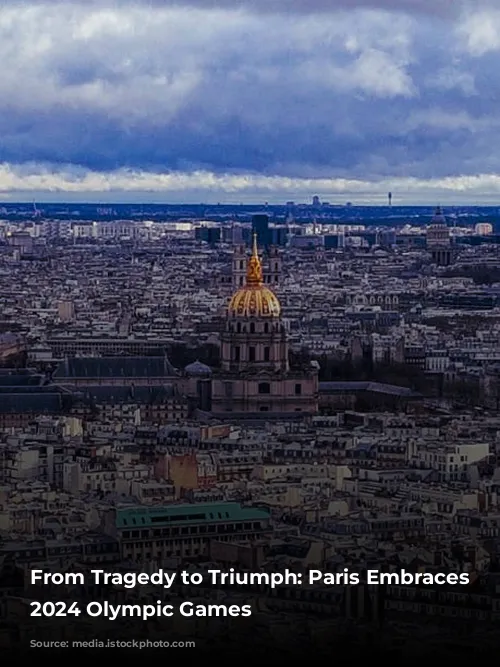The road to the 2024 Olympic Games in Paris has been paved with both tragedy and triumph. In 2015, the city was struck by a series of devastating terrorist attacks, leaving the French people in shock and mourning. The mayor of Paris, Anne Hidalgo, saw this horrific event as a turning point, recognizing the need for unity and healing. She believed that hosting the Olympics could be a catalyst for national renewal, bringing people together and reminding the world of France’s spirit and resilience.
Hidalgo recalls the deep sense of fear she felt, particularly hearing young people express admiration for the terrorists and a disregard for the importance of freedom of expression. This realization, she says, underscored the urgent need for a unifying force, and the Olympics presented a perfect opportunity to bring people together and inspire hope.

Facing Challenges: A City on Edge
The road to 2024 has not been without its bumps. The Games arrive at a time when France is grappling with a series of complex challenges. Social and political tensions are at an all-time high, as evidenced by the recent riots sparked by the death of a teenager at the hands of police, highlighting deep-seated racial and economic inequalities.
Additionally, concerns about the safety and security of the Games have been exacerbated by the ongoing war in Ukraine and the potential for more protests and strikes in the lead-up to the event.
Despite these obstacles, organizers insist that they are committed to delivering a safe and inclusive Games, prioritizing sustainability and using existing venues to minimize their environmental footprint. The Games are expected to cost less than the previous Olympics in Tokyo, but organizers still need to navigate a series of challenges to ensure success.
The Global Stage: A Moment for Unity and Inclusion
The 2024 Games will be a crucial moment for the International Olympic Committee (IOC) as it navigates a complex geopolitical landscape. The war in Ukraine has cast a shadow over the Games, with the potential for boycotts and the ongoing debate surrounding the participation of Russian and Belarusian athletes.
Hidalgo has joined the calls for a ban on Russian athletes, but the IOC, led by President Thomas Bach, has proposed a pathway for their participation as neutral competitors. The IOC’s efforts to maintain neutrality have been met with mixed reactions, with some countries threatening boycotts if the situation remains unresolved.
However, beyond the geopolitical complexities, the Games promise a captivating display of athletic excellence and international camaraderie. With iconic Parisian landmarks serving as backdrops for competitions like beach volleyball at the Eiffel Tower and skateboarding at Place de la Concorde, the Games promise a truly unique experience for spectators and athletes alike.
Looking Ahead: A Legacy of Sustainability and Unity
The 2024 Games will be a pivotal moment for the Olympic movement, representing a shift towards a more sustainable and inclusive model. Paris has adopted a minimalist approach, building only a few new venues and prioritizing existing infrastructure.
The city aims to showcase its cultural heritage while demonstrating that hosting the Olympics can be achieved without excessive spending and unnecessary construction. The Games offer a chance for Paris to leave a lasting legacy of sustainability and unity, a testament to its resilience and commitment to a better future.
As the world prepares for the Paris Olympics, the journey from tragedy to triumph is a powerful reminder of the human spirit’s capacity for resilience and hope. The Games are more than just a sporting event; they are a chance for the world to come together, celebrate athletic excellence, and embrace a future filled with possibility.
